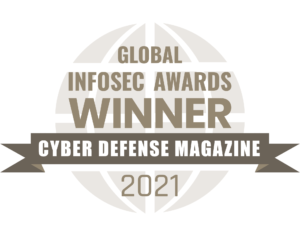How Spousal Identity Theft Impacts Corporate Cybersecurity

In today’s interconnected digital age, the lines between personal and professional cybersecurity have become increasingly blurred. One emerging threat that sits at this intersection is spousal identity theft. While many CISOs focus on protecting company data from external threats, a breach from disruptions at executives’ homes can be equally detrimental—with rippling effects on corporate cybersecurity at large.
What is Spousal Identity Theft?
Spousal identity theft occurs when one spouse or partner illegally accesses and misuses the other’s personal information without his or her consent. This type of fraud is particularly alarming because it is perpetrated by someone with deep access to sensitive details—such as financial information, personal security questions, or login credentials.
When it comes to executive cybersecurity, this threat can rapidly escalate to business-critical risks.
Why the Risks for Executives are Higher
Executives and high-profile individuals are at a heightened risk of spousal identity theft due to the extensive amount of personal and business information they possess. This includes access to corporate networks, sensitive emails, confidential contracts, and strategic plans—all of which hold significant value to hackers and corporate competition.
If an executive’s spouse or partner gains unauthorized access to these resources, either out of malice or during a deteriorating relationship, the consequences could be devastating for corporations.
The Corporate Cybersecurity Domino Effect
Here’s how spousal identity theft can directly impact corporate cybersecurity:
1. Unauthorized Access to Corporate Data
An executive’s spouse may inadvertently or intentionally obtain confidential corporate information through unauthorized means. This can happen via shared devices, weak personal passwords, or shared login credentials. Once breached, sensitive company information could be leaked, sold, or mishandled.
2. Credential Sharing and Weak Personal Cyber Hygiene
Many executives may reuse passwords or have inadequate security practices for personal accounts. If a spouse gains access to personal devices or accounts, these weaknesses can compromise corporate networks. For instance, shared devices with corporate credentials saved in browsers or applications are a potential goldmine for cybercriminals.
3. Data Manipulation and Financial Fraud
In situations of conflict or estranged relationships, a disgruntled partner may manipulate or alter sensitive information out of retaliation. This could include altering business documents, compromising strategic communications, or conducting fraudulent financial transactions that impact corporate funds.
4. Insider Threats and Corporate Espionage
A disgruntled spouse with ill intent may become an unwitting or deliberate insider threat. They could provide external malicious actors or competitors with corporate intelligence, creating opportunities for cyber espionage or financial sabotage.
Steps to Mitigate Spousal Identity Theft for Executives
To protect against spousal identity theft, companies and executives should consider the following proactive measures:
1. Personal Cybersecurity Education for Executives
Executives must be educated on the risks of spousal identity theft and its implications for corporate cybersecurity. Regular awareness training can help them understand the potential consequences and adopt stronger cybersecurity practices both at home and at work.
2. Implement Multi-Layered Authentication
It is essential to use multi-factor authentication (MFA) for all executive accounts, both personal and corporate. This ensures that even if a spouse gains access to credentials, additional layers of security can prevent unauthorized access to sensitive corporate data.
3. Personal and Corporate Device Segregation
Encourage the separation of personal and corporate devices to prevent accidental or intentional data crossovers. Even when traveling or working remotely, executives should avoid sharing devices with family members to maintain a secure boundary between personal and business affairs.
4. Conduct Regular Cybersecurity Audits
Frequent cybersecurity audits and risk assessments should extend to the executive’s home network and devices. This includes monitoring for shared accounts or unsecured devices that could expose sensitive data.
5. Legal Precautions and Protection
Executives should work with legal advisors to establish protective measures, such as prenuptial agreements or access limitations to accounts. These steps can preemptively restrict access to financial or corporate resources in case of marital conflicts.
6. Personal Cybersecurity Services
Services that specialize in protecting the personal information of executives can prevent digital exploitation by bad actors even in the same household. Services like BlackCloak offer account monitoring, data hardening, real-time incident response, and much more.
Spousal Identity Theft – How CISOs Can Prepare
Spousal identity theft isn’t just a personal issue; it’s a corporate cybersecurity concern. In an era where personal relationships can expose companies to digital vulnerabilities, executives must prioritize robust cybersecurity measures at home to safeguard their professional roles.
That’s why BlackCloak’s digital executive protection solutions are tailored to help protect executives’ cybersecurity from any and all threats.
Contact our team today to learn how we can keep your executives’ digital lives safe and secure.











